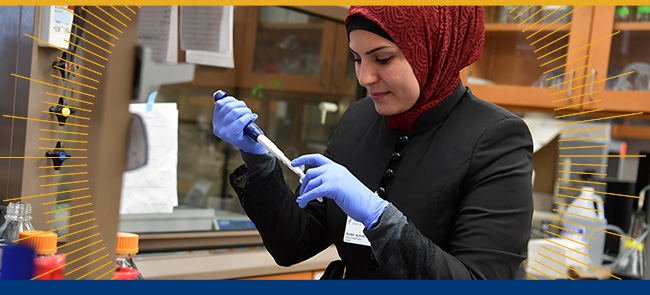 |
| |
|
|
| |
Achieving R1 Research Designation
It is hard to communicate the level of excitement around research, scholarship and innovation that we have experienced at Kent State since our last research newsletter. We were notified in February that Kent State University’s Carnegie classification rose from R2 (high research activity) to R1 (very high research activity). There are only 146 universities designated as R1, and we found ourselves among very prestigious company (see story below).
Achieving this designation is an incredible testament to the accomplishments and contributions of faculty, staff and administration across the entire Kent State system. As an institution committed to providing access to higher education and supporting students through the completion of their degree, we also provide our students with world-class research and creative experiences that are more typical of elite institutions with higher costs and more restrictive entrance criteria.
Please share our excitement and take a moment to learn more about how our students and faculty continue to be recognized for their outstanding work as we strive to create new knowledge and bring about real and positive change in the world.
Doug Delahanty, Ph.D.
Interim Vice President for Research and Sponsored Programs

|
|
|
| |
|
|
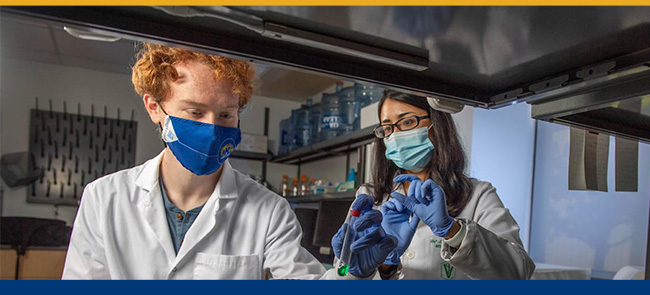 |
| |
|
|
| |
Kent State Awarded the Highest Recognition for Research Universities
The Carnegie Classification of Institutions of Higher Education has awarded Kent State University the esteemed R1 status for research, which is the highest recognition that doctoral universities can receive. The prestigious designation affirms Kent State’s place as an elite research institution and puts the university in the company of universities such as Yale, Harvard and the University of California-Berkeley.
Kent State became one of five universities in Ohio to be designated R1, joining Ohio State, the University of Cincinnati, Case Western Reserve University and Ohio University. Institutions with the R1 designation are considered to have “very high research activity.” Only 146 universities in the nation have R1 status. Kent State, Ohio University and the University at Buffalo are the only Mid-American Conference schools to carry this coveted and esteemed designation.
“This recognition underscores the excellence and the breadth of research and scholarship at Kent State,” said Kent State President Todd Diacon. “This is an amazing accomplishment and a testament to the hard work of our faculty, staff and leadership at Kent State. It is, along with attaining a record-high graduation rate on the Kent Campus and the growing diversification of our student body, one of three signature achievements of the last decade.”

|
|
|
| |
|
|
| |
| Student Selected for Prestigious Research Program
|
| |
| Edwin Duckworth, a physics doctoral student in the College of Arts and Sciences at Kent State, is among 65 students from 29 states recently selected for funding by the Department of Energy’s (DOE) Office of Science Graduate Student Research (SCGSR) program. The program aspires to “address societal challenges at the national and international scales.”
|
| |
|
|
|
|
|
|
| |
| $2 Million Gift Supports Brain Health Research
|
| |
| Earl K. Miller, ’85, Ph.D., and his wife Marlene M. Wicherski, have pledged $2 million to support research and students in Kent State’s Brain Health Research Institute. “Dr. Miller is a wonderful example of where a Kent State education can take you in life,” said Kent State President Todd Diacon. “We very much appreciate the strong connection he and Ms. Wicherski have maintained with the university.”
|
| |
|
|
| |
|
|
|
|
| |
| Understanding Impacts on LGBTQIA+ Communities From the Pandemic
|
| |
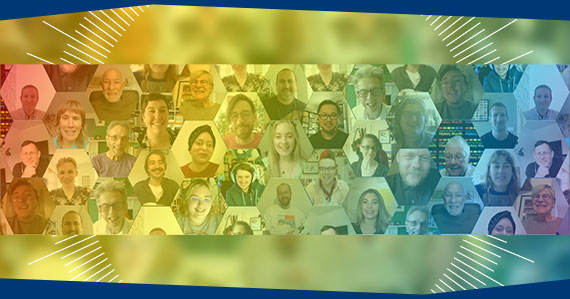 |
| |
| |
Moira Armstrong (they/them), ’22, undergraduate in the College of Arts and Sciences, is a research assistant on the Queer Pandemic Project. They collaborate with Molly Merryman, Ph.D. (she/they), associate professor in the School of Peace and Conflict Studies, to compile digital, video-based oral interviews for the Queer Pandemic Project in a partnership between Kent State University, Goldsmith’s University of London and Queer Britain. These interviews feature people in queer communities across the United Kingdom, discussing the COVID-19 pandemic and how it has impacted their lives as queer people.

|
|
| |
|
| |
| |
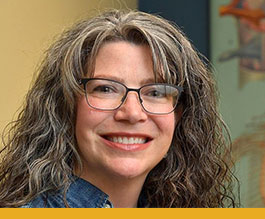 |
| |
| Professor Elected as Prestigious Scientific Society Fellow
|
| |
| Mary Ann Raghanti, Ph.D., a biological anthropology professor and chairperson in Kent State’s Department of Anthropology in the College of Arts and Sciences, has been elected a Fellow of the American Association for the Advancement of Science (AAAS), the world’s largest general scientific society and publisher of the journal Science. Raghanti also serves as a faculty member in Kent State’s School of Biomedical Sciences and a member of the Executive Committee of the Brain Health Research Institute.
|
| |
|
|
|
| |
|
|
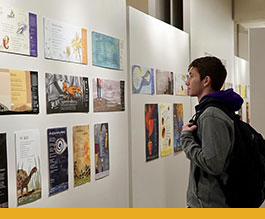 |
| |
| Health and Well-Being Brought to Light by Healing Stanzas
|
| |
| Healing Stanzas, a collaboration between the Wick Poetry Center, the Healthy Communities Research Institute and the Brain Health Research Institute (BHRI), seeks to combine the science of brain health and public health with the creative energy of the humanities to provide Kent State students, staff and faculty with an opportunity to improve wellness through reflective poetry. The program focuses on the mental health of students, faculty and staff as the pandemic has exacerbated stress and mental health symptoms.
|
| |
|
|
|
| |
|
|
|
|
| |
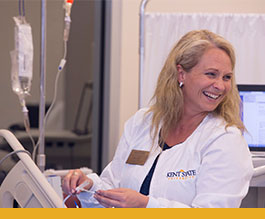 |
| |
| $850,000 Awarded for New Nursing School Technology
|
| |
| Intravenous (IV) needle insertion is a practice that many medical professionals learn and need to master. A new project in the works at Kent State will help nursing students improve their skills with cutting-edge technology. Researchers are joining forces to develop technology using haptics and mixed reality to let students practice inserting needles in a controlled environment and investigate whether controlled variability in practice (disuse theory) improves needle insertion skills.
|
| |
|
|
|
| |
|
|
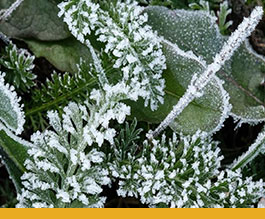 |
| |
| Scientist Publishes Trends in “Weather Whiplash” Events
|
| |
| Who hasn’t heard the somewhat sarcastic phrase, “If you don’t like the weather, wait five minutes?” Did you know there is now a term for this? They are called “weather whiplash” events. Many wonder if climate change is the reason we’ve had these day-to-day dramatic changes from hot to cold or cold to hot. As a climate scientist, Cameron Lee, Ph.D., assistant professor in the Department of Geography in the College of Arts and Sciences at Kent State, is frequently asked this question.
|
| |
|
|
|
| |
|
|
|
|
| |
| Support Research at Kent State |
| |
|
Do you have a passion for providing students with the life-changing experience of research? Maybe you would like to help us celebrate and recognize the amazing accomplishments of our student and faculty researchers? Perhaps you have an interest in supporting progress and discovery in a specific field or topic? Visit our giving page to learn about some of the ways you can get involved and support research across our remarkable university. We hope you will find a giving opportunity that speaks to your passion.

|
| |
|
|
|
|